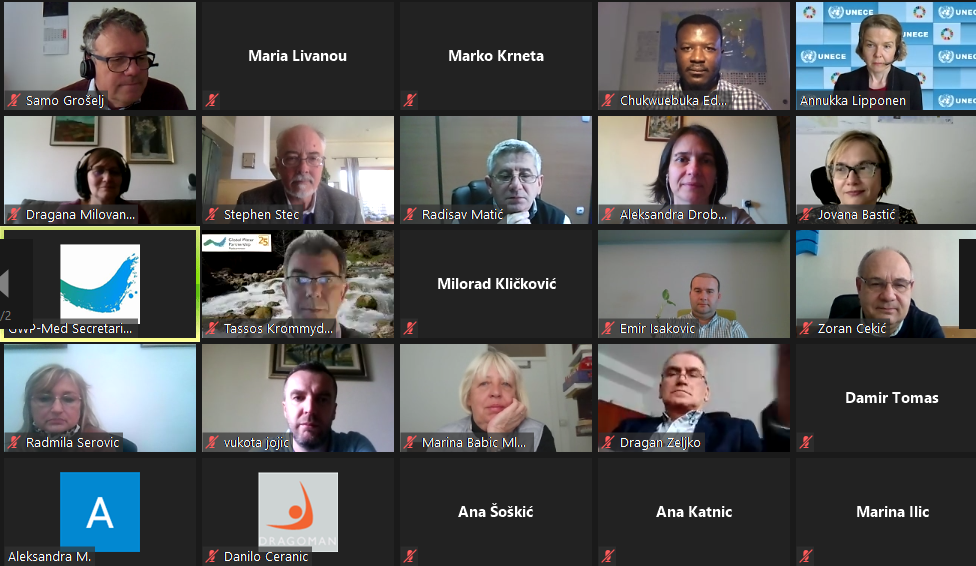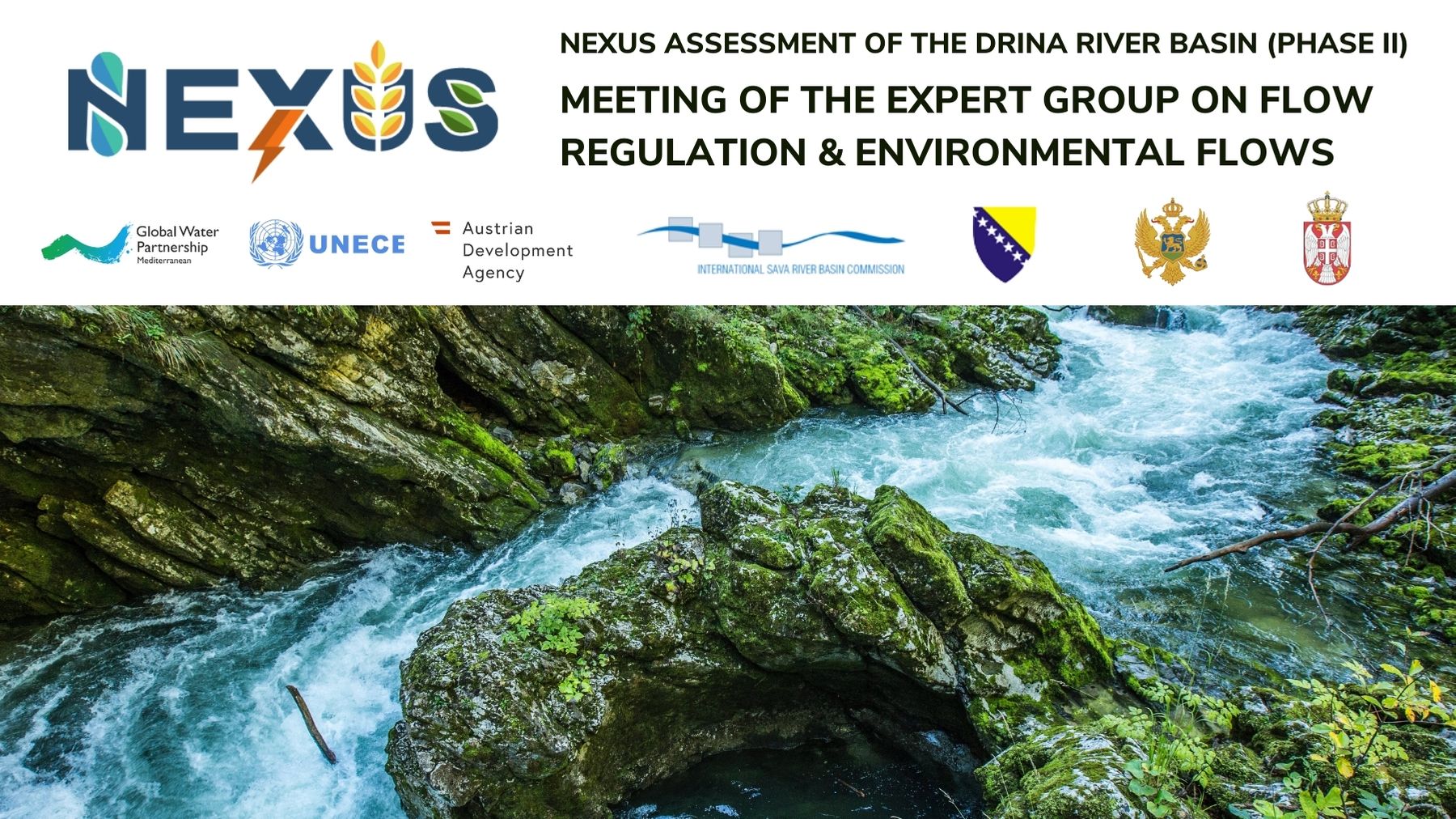It brought together members of the Expert Working Group as well representatives, operators and experts from ministries, institutes, agencies from the energy, environment and water sectors and civil society representatives from Bosnia and Herzegovina, Montenegro and Serbia. The Expert Group on Flow Regulation and Environmental Flows on the Drina River Basin, consists of members with diverse expertise, including water management and environment protection authorities as well as hydropower operators. It was established with the support of the Drina Nexus Follow-Up Project and held its first meeting in 2019.
This second meeting provided an opportunity to participants to draw from the work done so far, on a transboundary and national level. They were also able to further explore and promote discussions on the issue of formal flow regulation mechanisms between countries sharing international river basins as well as to highlight good practices in transboundary basins worldwide.
At his opening speech, Mr. Dragan Zeljko, Secretary of the International Sava River Basin Commission stressed the importance of the nexus approach and recognized the necessity for intersectoral coordination, highlighting data and information sharing and transboundary cooperation as a key for successful and sustainable water management in the region. The SEE Nexus project was presented as well as the background work on the water-food-energy-ecosystems nexus on the Sava and the Drina.
Ms. Marina Babić Mladenović, advisor at the Jaroslav Černi Water Institute referred to the results of a transboundary study for the Drina River basin and Mirza Sarač from the Sava Commission Secretariat updated participants about the data exchange system established for the Sava River Basin. Mr. Samo Grošelj, Deputy secretary for Protection of Waters and Aquatic Eco-system in Sava Commission presented the ongoing project Water Contingency Management in the Sava River Basin (WACOM).
Following the update on initiatives at the transboundary level, Mr. Darko Janjić, senior expert at Public Water Management Company, informed participants about an agreement signed by the relevant ministries of the basin establishing a joint body for coordination and cooperation that will tackle the issue of pollution of the Drina and Lim river basins at the national level. The current study on the Drina river basin and the different options for the eventual formalization of key aspects of flow regulation across the riparian countries of the Drina and their Nexus sectors was also presented by an external expert.

At the end of the meeting, participants decided on:
- next steps and the need for further exchange of data,
- more research on Nexus issues to improve knowledge in the basin
- the need for dialogue between representatives of all hydropower companies and authorities in order to harmonize work of hydropower plants and
- improvement of intersectoral cooperation at both nation and basin level.
The SEE Nexus Project (“Promoting the Sustainable Management of Natural Resources in Southeastern Europe, through the use of the Nexus Approach”) is funded by the Austrian Development Agency (ADA), the operational unit of Austrian Development Cooperation and is implemented by Global Water Partnership-Mediterranean (GWP-Med) in partnership with the United Nations Economic Commission for Europe (UNECE).
